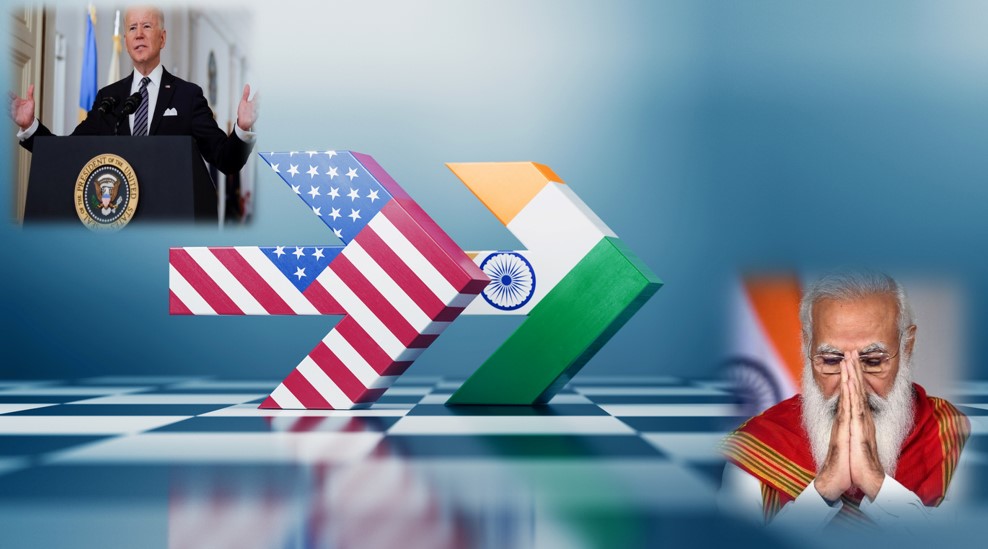
US-India Relationship is Robust and Resilient – But Future Tests Await
Thu, 17 Jun 2021 | Reading Time: 5 minutes

US-India Relationship is Robust and Resilient – But Future Tests Await
The partnership’s ability to overcome early challenges in the Biden era attests to its resilience and strength, and positions it for further growth in the coming months, post-pandemic. But it will face additional tests, sooner rather than later.
Over the last few decades, few bilateral relationships have grown as steadily as the US-India partnership. It enjoys strong non-partisan support in both capitals, and it has not experienced a major crisis for quite a few years—including during the era of Donald Trump, when US foreign policy became a highly volatile enterprise.
During the early months of the Biden administration, the relationship faced three tests—and it passed them all with flying colors. The partnership’s ability to overcome these challenges attests to its resilience and strength, and positions it for further growth in the coming months, beyond the pandemic—even though it will likely face additional tests, sooner rather than later.
The first test for the relationship was the leadership transition in Washington. The US-India relationship flourished in the Trump era; the President’s dramatic foreign policy shifts did not impact the partnership, which achieved major new military agreements and initiated a new high-level 2+2 dialogue. And Trump enjoyed a warm personal rapport with Indian Prime Minister Narendra Modi. The Biden administration, given its stated focus on democracy and human rights, generated some concerns in India that the new White House would galvanize progressives on Capitol Hill critical of India’s human rights record, and risk undermining the strong US bipartisan support that undergirds the relationship.
However, the US-India relationship has been smooth sailing under Biden to this point. Though the administration’s main initial policy focus has been domestic, it has nonetheless carved out time for a series of Cabinet-level engagements with New Delhi. Indian External Affairs Minister Dr S Jaishankar’s five-day visit to the US—even during the height of a pandemic surge back home—amplifies the degree of bilateral engagement. Additionally, potential problems for the relationship, as noted below, have been quickly addressed, with no bilateral damage.
The second test for the relationship in the Biden era was a Freedom of Navigation Operation conducted by a US Navy war ship, without New Delhi’s prior approval, in India’s Exclusive Economic Zone in April. Many Indians reacted with unhappiness, mainly because the FONOP was quickly publicized—a change from past practice, when such incidents were typically acknowledged later on, in periodic government reporting documents. Why Washington made this communication policy change is unclear. What’s important, however, is that it didn’t become a major crisis. In all likelihood, the two sides quietly engaged to discuss what happened and pledged to keep communication channels open to prevent future misunderstandings.
The third, and arguably most important, test was Washington’s strangely slow response to India’s terrible pandemic surge this spring. China, Iran, Russia, and Pakistan immediately conveyed words of sympathy and solidarity and offered support, but the Biden administration maintained a radio silence, with no announcements, statements, or even a tweet. For many in India, Washington’s silence was upsetting, and it contrasted with the swift reaction from Russia. This contrast underscored, for some on both the Indian political left and right, that despite major progress in US-India relations in recent years, it is Moscow that remains India’s most time-tested and dependable partner.
Fortunately, a diplomatic disaster was averted. Eventually, seemingly en masse, senior US officials—including many Cabinet secretaries—issued statements of support. The White House held multiple high-level exchanges with New Delhi, including a call between Biden and Modi. US officials announced a large inter-agency relief package. And they had detailed pandemic-related discussions with Jaishankar during his long visit.
In all likelihood, the delayed US reaction was a product of bureaucracy, not policy: With so many unfilled senior-level India-focused positions, there wasn’t anyone in a position to immediately and directly flag India’s emergency to the President and the need to move quickly to address it. To be sure, there may have been other constraints—including the administration’s desire to be cautious about quickly sending many pandemic supplies abroad when it was still grappling with the virus at home. Still, the administration’s eventual large-scale mobilization, both in terms of public messaging and its relief package, attests to its commitment to assist India. It was a classic case of better late than never.
Having passed these tests, the US-India relationship is poised to continue its exponential growth, and beyond the short-term focus on pandemic collaboration. Indeed, concerns about China have long been the core driver of bilateral security partnership. With both Washington and New Delhi grappling with their respective relationships with Beijing having sunk to their lowest levels in decades, the incentives for further cooperation will only strengthen. China’s “wolf warrior diplomacy” directly threatens US and Indian interests, and it shows no signs of going away. The rejuvenation of the Quad, which provides a credible multilateral overlay for deeper US-India cooperation, will boost US-India partnership as well.
Additionally, the geopolitical sands of South Asia are shifting in ways that benefit US-India comity. The US withdrawal from Afghanistan will eliminate the main anchor for Washington’s relationship with Islamabad, meaning that US-Pakistan ties could be downgraded. India has reduced its arms relationship with Russia, while Moscow has scaled up its overall ties with Islamabad. Deepening relations between Pakistan, China, and Turkey suggest a growing entente of nations that are hostile to India or otherwise at odds with it—thereby underscoring the imperative of closer Indian relations with Washington.
This isn’t to say US-India relations will be trouble-free in the Biden era. Trade tensions—a rare obstacle in the Trump era—must be eased, but Biden won’t be a pushover in negotiations: He’ll likely give in to some protectionist impulses, keeping in mind a slowly-recovering but still-fragile post-pandemic US economy. And he’ll insist on environmental and labor guarantees for any new trade accord. Additionally, while the administration, in deference to a close partner, will refrain from extensive public criticism of democracy and rights issues in India, it likely won’t shy away from expressing concerns from time to time—especially on issues about which Biden voices a strong personal concern, such as Internet bans and other uses of technology that he believes work against democracy.
But perhaps the biggest future test revolves around the India-Russia S-400 deal. It may seem unthinkable that the administration would sanction a top security partner. But then again, the Trump administration sanctioned Turkey, a NATO ally, for its own S-400 acquisition from Russia. In all likelihood, the White House will find a way to justify a waiver for New Delhi. But until Washington actually does so, the issue will hover above the relationship like the sword of Damocles.
There will also be broader strategic challenges for the relationship. Two key policy circles must be squared. One is how to reconcile the fact that New Delhi’s main geostrategic priority in the Indo Pacific is the Indian Ocean Region, while Washington’s remains the South China Sea. The other is how to craft a deeper security partnership outside of an alliance system that Washington prefers, but that New Delhi avoids.
Such questions speak to the urgency of establishing high-level mechanisms that allow for sustained high-level dialogue around the issue of advancing strategic partnership. Given that the relationship is laden with momentum, goodwill, and trust, such dialogue can be a useful, positive exercise that lays out ideas for how to take the partnership to new levels.
********************************************************************************************************
Author

Michael Kugelman is Asia Program deputy director and senior associate for South Asia at the Wilson Center in Washington, DC.
Disclaimer
The opinions expressed in this article are the author’s own and do not reflect the views of Chanakya Forum. All information provided in this article including timeliness, completeness, accuracy, suitability or validity of information referenced therein, is the sole responsibility of the author. www.chanakyaforum.com does not assume any responsibility for the same.
Chanakya Forum is now on . Click here to join our channel (@ChanakyaForum) and stay updated with the latest headlines and articles.
Important
We work round the clock to bring you the finest articles and updates from around the world. There is a team that works tirelessly to ensure that you have a seamless reading experience. But all this costs money. Please support us so that we keep doing what we do best. Happy Reading
Support Us





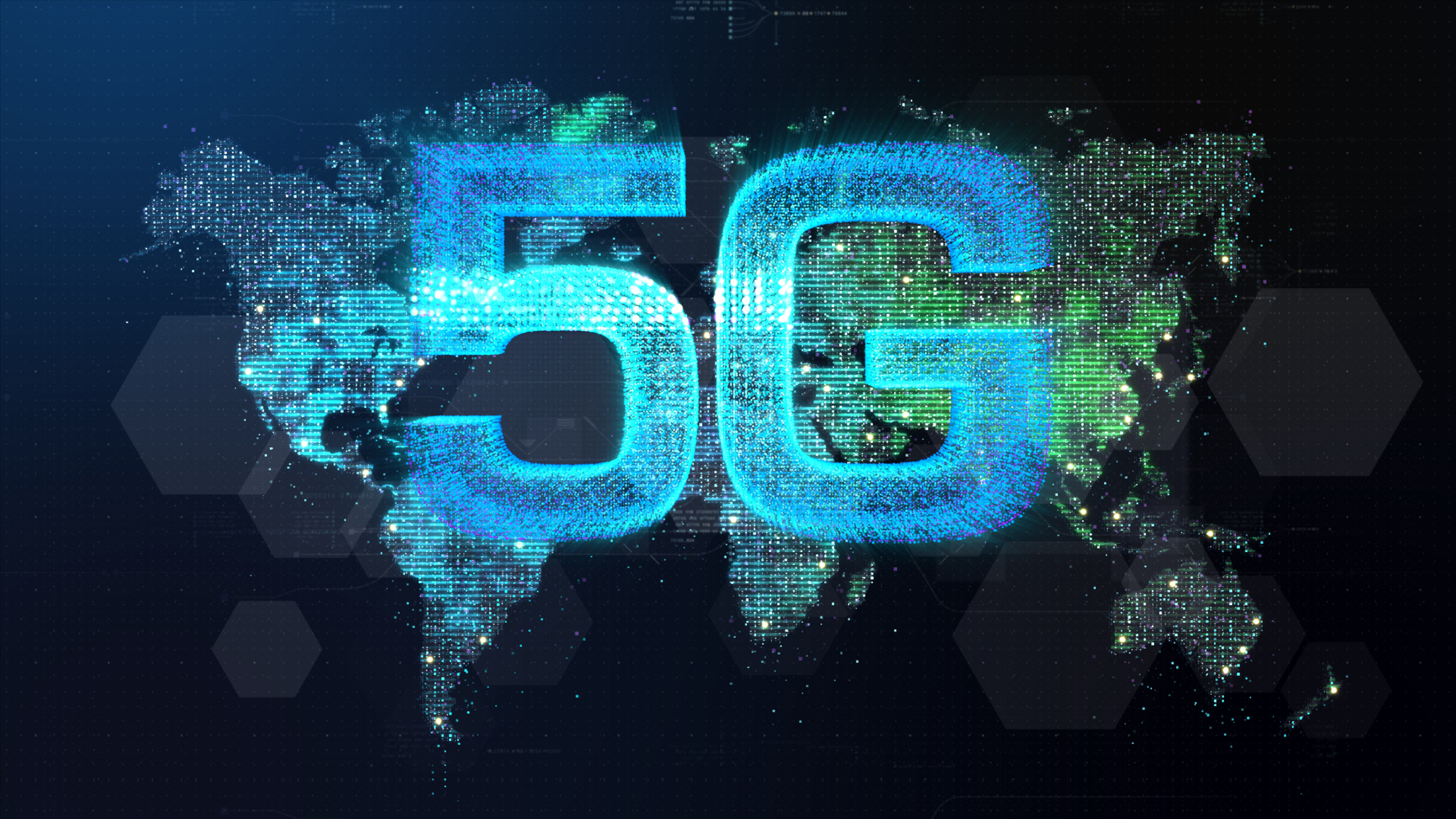
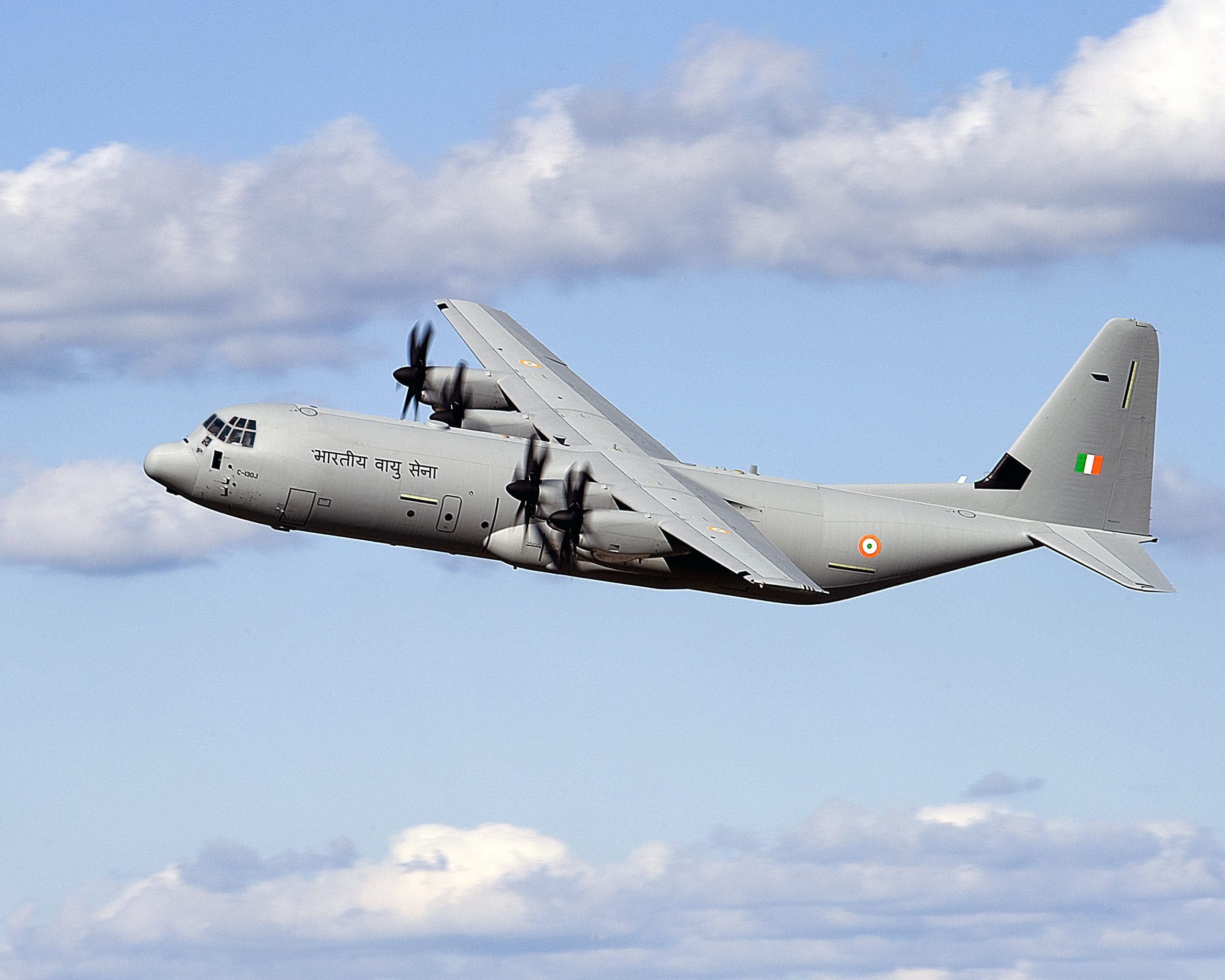

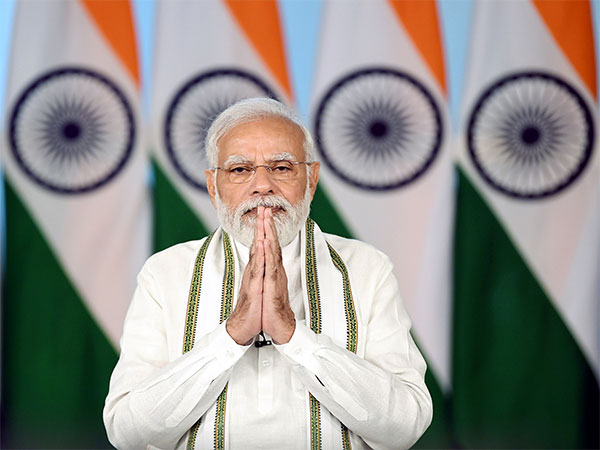
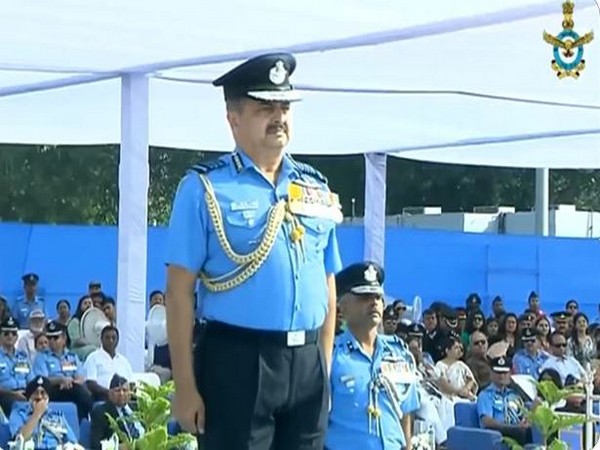
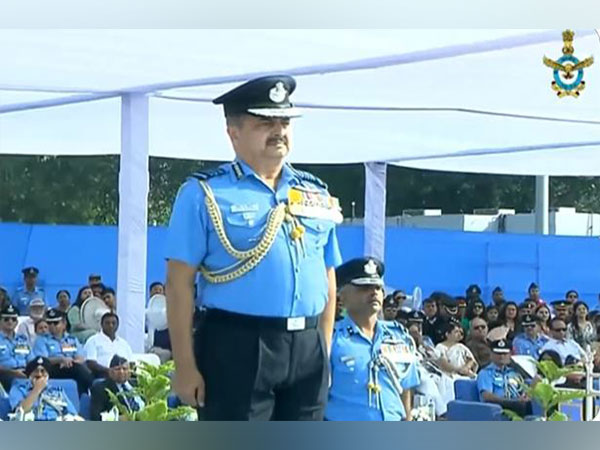

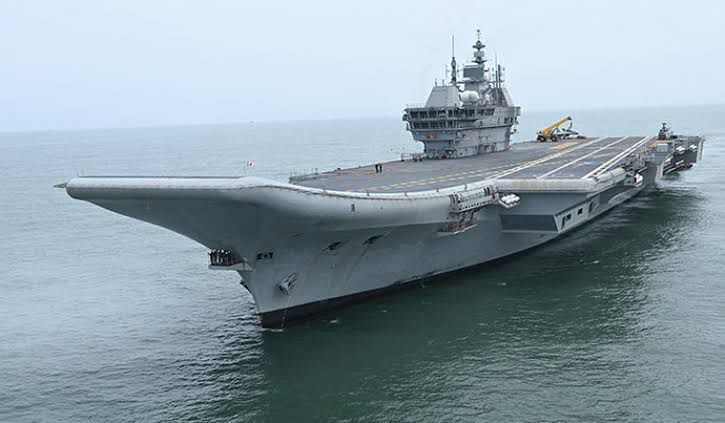







POST COMMENTS (9)
P.S. eudonym
HD
ASHOK IYER
Mukesh.Naik
Abhiram Patavardhan
BHAVIL GOYAL
RAHUL PRAJAPATI
Arjun Jai Viren
Ashok Kumar Tomar